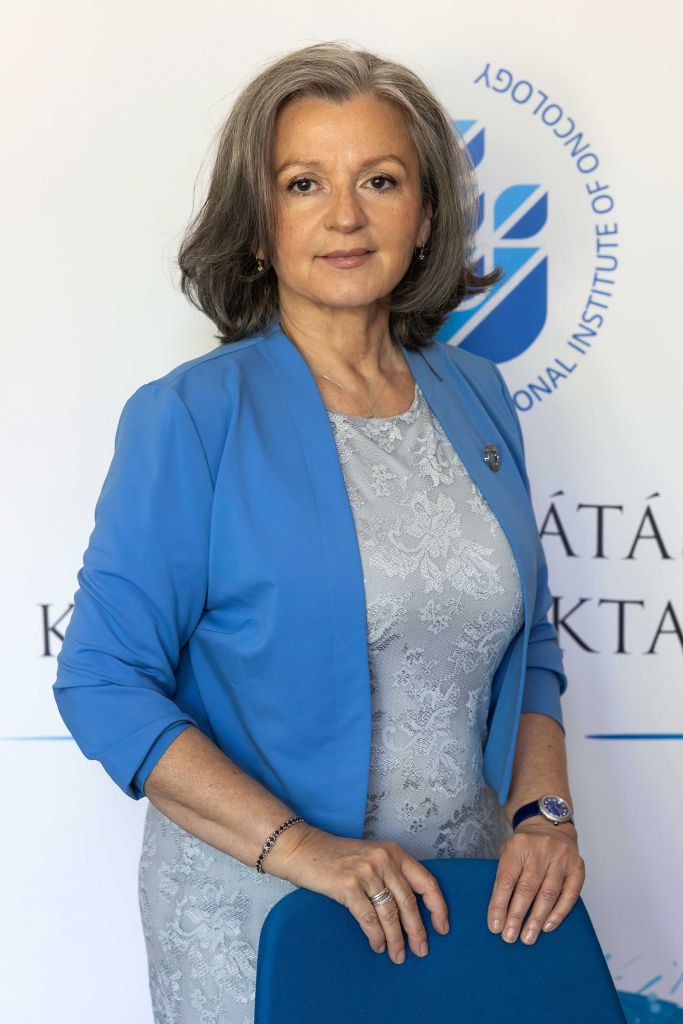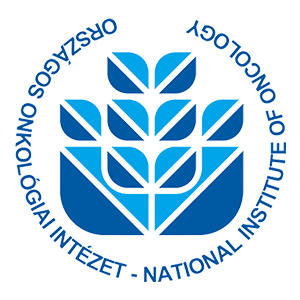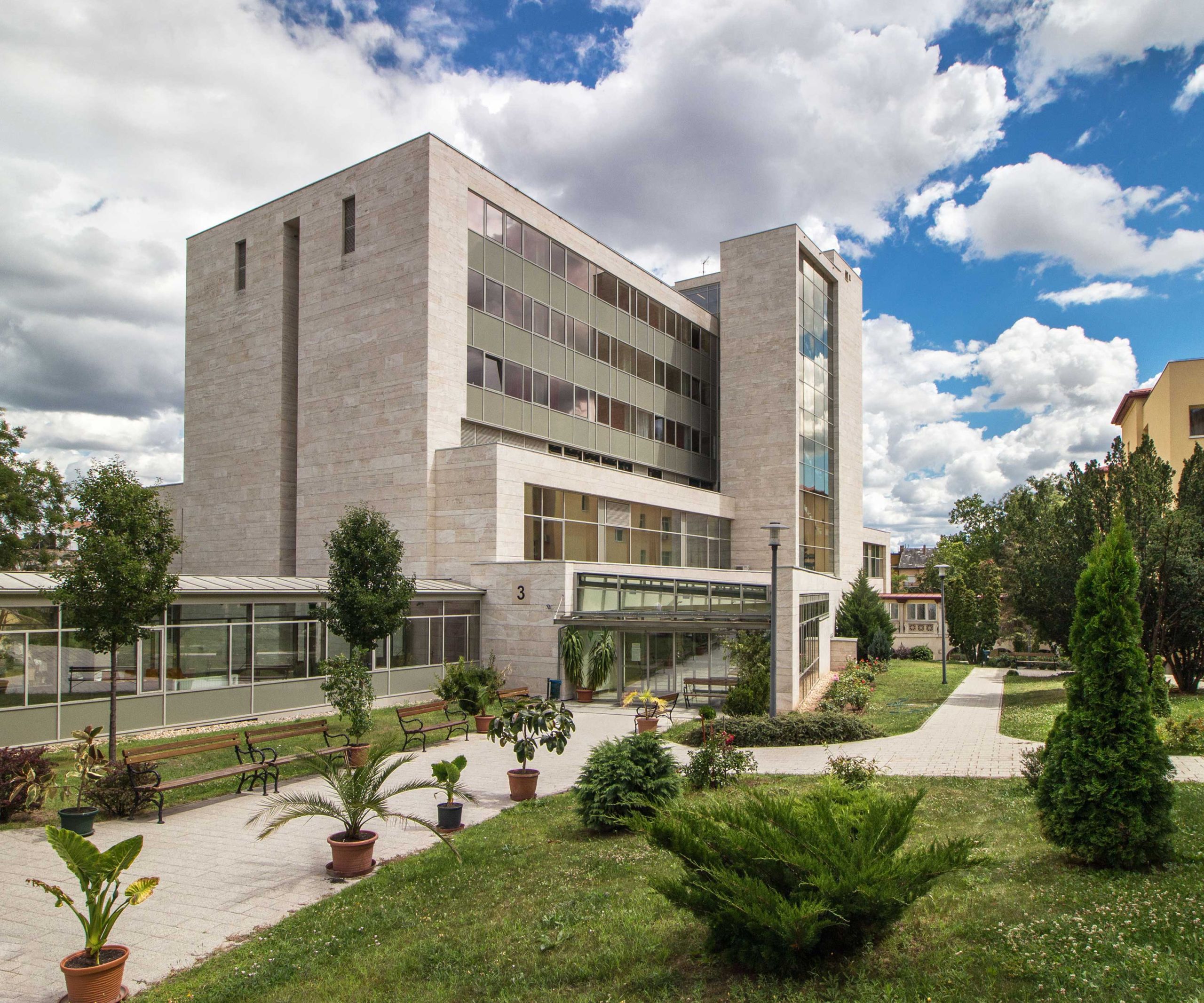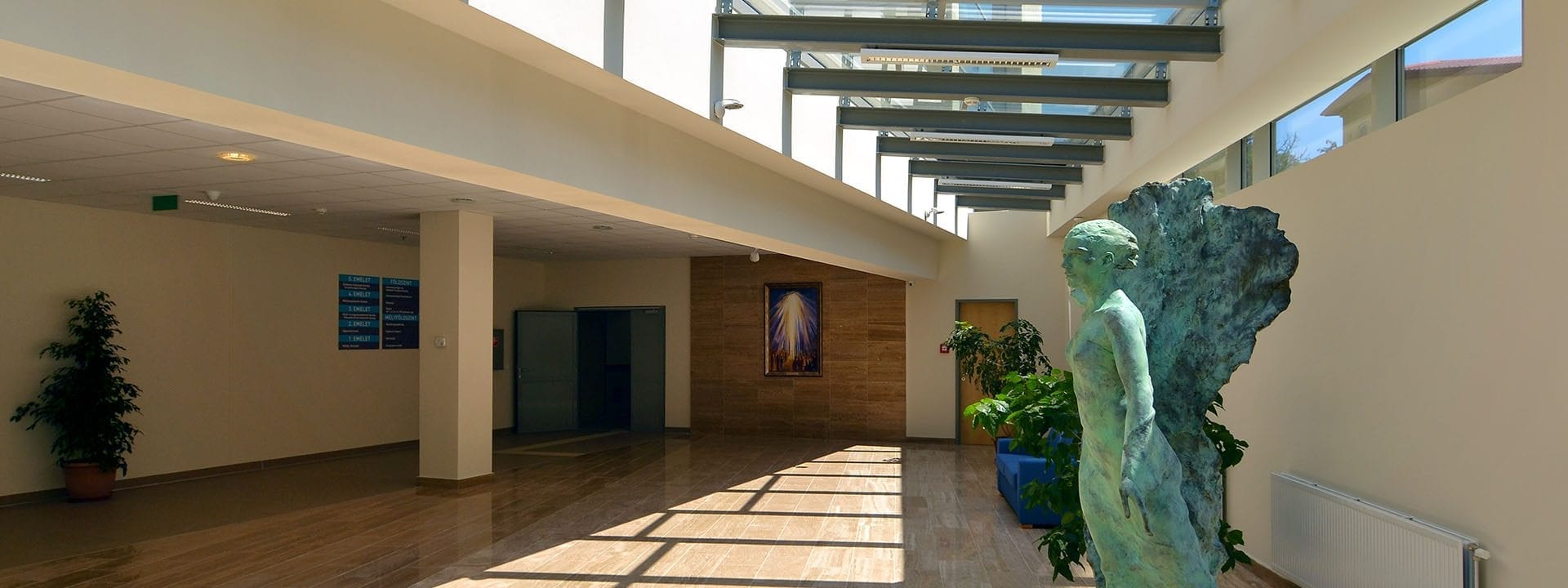FELHÍVÁS
2025. január 7-től az alábbi szabályok lépnek érvénybe a légúti vírusfertőzések terjedésének megelőzése érdekében:
Egészségügyi dolgozóknak: minden olyan helyiségben, ahol betegellátás történik, kötelező a sebészi orr-szájmaszk viselése.
Betegeknek és látogatóknak: a sebészi orr-szájmaszk viselése erősen ajánlott.
Köszönjük megértésüket és együttműködésüket!


Tisztelt Betegeink, Kollégáink, Olvasóink!
Köszöntöm Önöket az Országos Onkológiai Intézet főigazgatójaként. Intézetünk nemcsak Magyarország egyetlen komprehenzív rákcentruma, hanem az a hely is, ahol a tudomány, a gyógyítás és az emberi elkötelezettség találkozik.
Hiszünk abban, hogy a daganatos betegségek elleni küzdelem túlmutat az orvosi protokollokon. Ez a munka nemcsak szakmai, hanem mélyen emberi: empátiát, türelmet, figyelmet és hosszú távú elköteleződést kíván. Minden beteg mögött történet van, és nekünk abban kell segítenünk, hogy ezek a történetek reménnyel folytatódhassanak.
Intézetünk nemzetközi szinten is elismert, és örömmel tölt el, hogy az Európai Uniós projektek révén nemcsak új terápiás lehetőségekhez juthatunk hozzá, hanem kutatóink, orvosaink és fiatal kollégáink is bekapcsolódhatnak a világ tudományos vérkeringésébe.
A Semmelweis Egyetem 3 tanszéke működik intézetünk falai között – ez a közös tudásépítés tere. Az oktatás számunkra nem kötelezettség, hanem jövőformálás. Abban hiszünk, hogy a következő generáció szakmai felkészítése mellett emberi tartást is örökítünk tovább.
Különösen fontosnak tartjuk a társadalommal való párbeszédet – a civil szervezetekkel, betegekkel és hozzátartozókkal való nyitott, egyenrangú kommunikációt. A daganatos betegségek ma már sok esetben krónikus állapottá válnak – és ebben az új élethelyzetben a betegek és családjaik támogatása közös ügyünk.
A jövőt olyan intézményként képzeljük el, amely egyszerre magas szakmai színvonalú, empatikus betegellátást nyújt, ugyanakkor szellemiségében is példát mutat: nyitottságban, együttműködésben és társadalmi felelősségvállalásban.
Köszönöm, hogy velünk vannak ebben a munkában.
Együtt nemcsak gyógyítunk – jövőt építünk.
Prof. Dr. Dank Magdolna
Főigazgató Főorvos

bemutatása
Az Országos Onkológiai Intézet több mint fél évszázada a magyar onkológia terápiás, kutatási, oktatási és módszertani központja. Nemzetközi szinten is elismert kutatási eredményeink, a betegek gyógyulási arányának növekedése az elmúlt évtizedek fejlesztéseinek és odaadó munkatársainknak köszönhető.
kiemelt feladata
Intézetünk kiemelt feladata a jövő orvosgenerációjának képzése és folyamatos továbbképzése, a medikusok, szakorvosjelöltek és szakorvosok oktatása. Célunk a gyógyítás, a legfejlettebb onkológiai terápiák, a célzott kezelések mellett, a tudomány területén kiemelkedő eredmények elérése, valamint a figyelem felhívása a megelőzés és a szűréseken való részvétel fontosságára. A legfontosabb célkitűzésünk – a Nemzeti Rákellenes Program keretében – 2030-ig a daganatos halálozás 10%-os csökkentése Magyarországon.




















